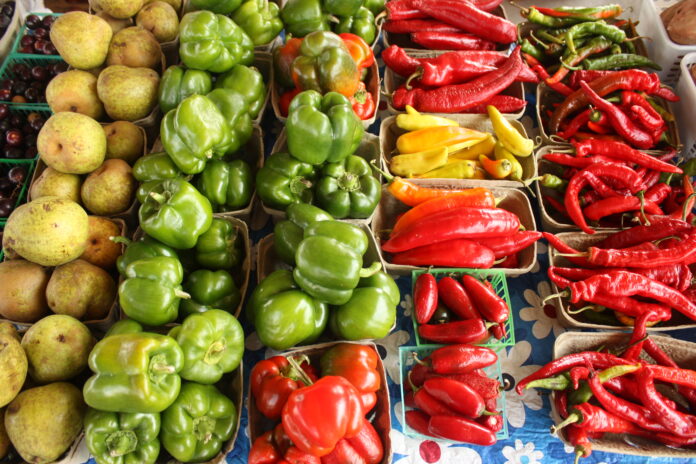AUBURN UNIVERSITY, Ala.—Alabama is home to more than 170 farmers markets, which thousands of farmers rely on to sell produce that they pour their blood, sweat and tears into growing. The Alabama Farmers Market Authority (FMA) is the governing body of these markets. To take advantage of markets, festivals and roadside stands, farmers must obtain an Alabama Growers Permit from the FMA.
Benefits of the Permit
One might think “oh great, another license,” but the growers permit actually comes with several benefits. The growers permit allows farmers to sell raw produce–such as fruits, vegetables and eggs–tax- and fee-free.
At one time, farmers had to obtain licenses in multiple counties to sell goods in multiple counties. The growers permit allows farmers to sell their goods at any location within the state under one license. The FMA created the permit to lower costs for farmers who wanted a direct market for their produce. Lower costs are paramount for farmers, according to Kristin Woods, an Alabama Cooperative Extension System food safety and quality regional agent.
According to Woods, farming non-commercially is getting more and more difficult, and less cost effective.
“The result of the permit is that farmers are able to increase their market locations without incurring additional licensing fee,” Woods said. “Allowing farmers to expand to make fresh produce more available to us is a tremendous public benefit.”
What does the permit cover and not cover?
The permit specifically reduces costs on raw commodities for farmers. It covers raw fruits, vegetables and eggs, as well as vegetable transplants and ornamentals. What doesn’t quite make the cut, though, are goods like jellies, jams and meats.
These items are all deemed “value-added” or “processed” and no longer raw, Woods said.
Why did the FMA create the permit?
The FMA created the growers permit to lower costs for crop farmers. Livestock sales in the state are exempt from sales tax when sold by the producer directly, but not when sold by a separate party. The growers permit gives this advantage to crop farmers as well by allowing them to sell their produce directly, instead of from home or from a store.
Going Beyond Growers
Seniors may apply for a $30 benefit card to spend at authorized farmers markets throughout the state. While seniors may be accustomed to the paper vouchers that have been in use since 2001, the FMA is making a switch to card vouchers in 2022. More information on who can receive this card and how to apply can be found on the Extension website (https://www.aces.edu/blog/topics/counties/senior-farmers-market-nutrition-program-a-win-win-for-growers-and-seniors/) or the Farmers Market Authority’s website (http://fma.alabama.gov/SeniorNutrition/)
More Information
Find out more about the Alabama Growers Permit and the Alabama Farmers Market Authority by visiting their websites listed above. Growers can obtain permits by visiting their local Extension office. Only a valid form of identification is necessary to complete permit paperwork.
The implementation of new senior voucher cards necessitates face-to-face trainings for participating farmers market growers. There are 17 grower meetings scheduled between February and April. The ADAI recommends that growers check for up-to-date meeting information by visiting http://www.fma.alabama.gov/. Contact the local Extension office for a list of meeting dates or to obtain a permit.


















